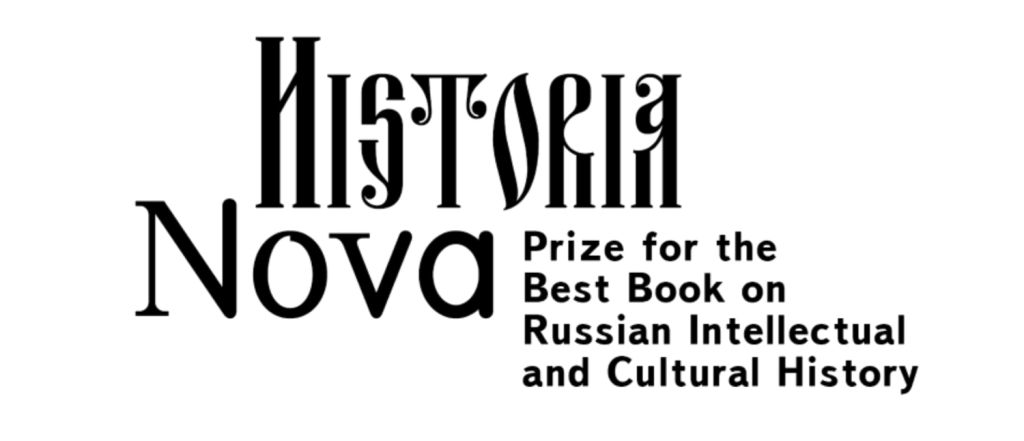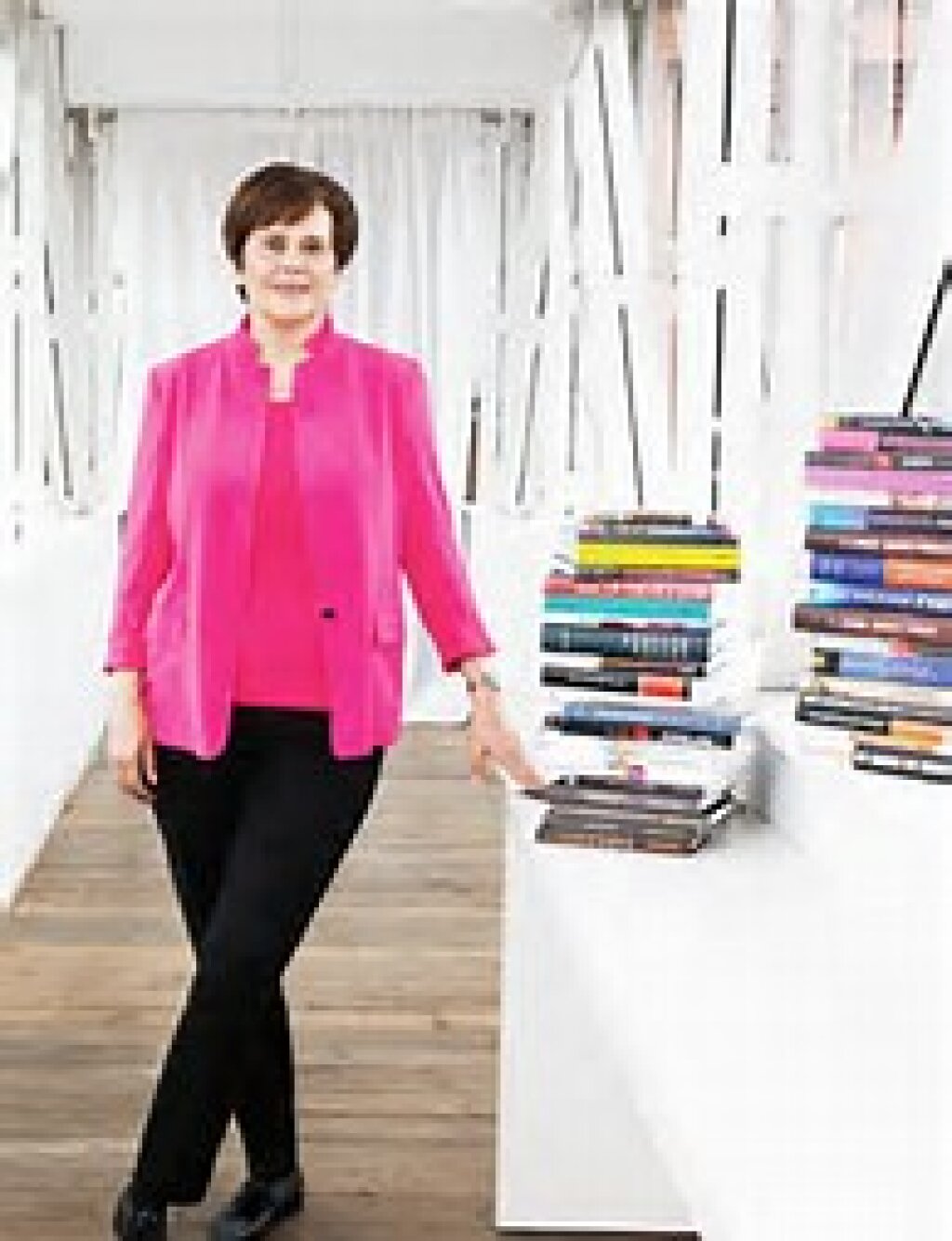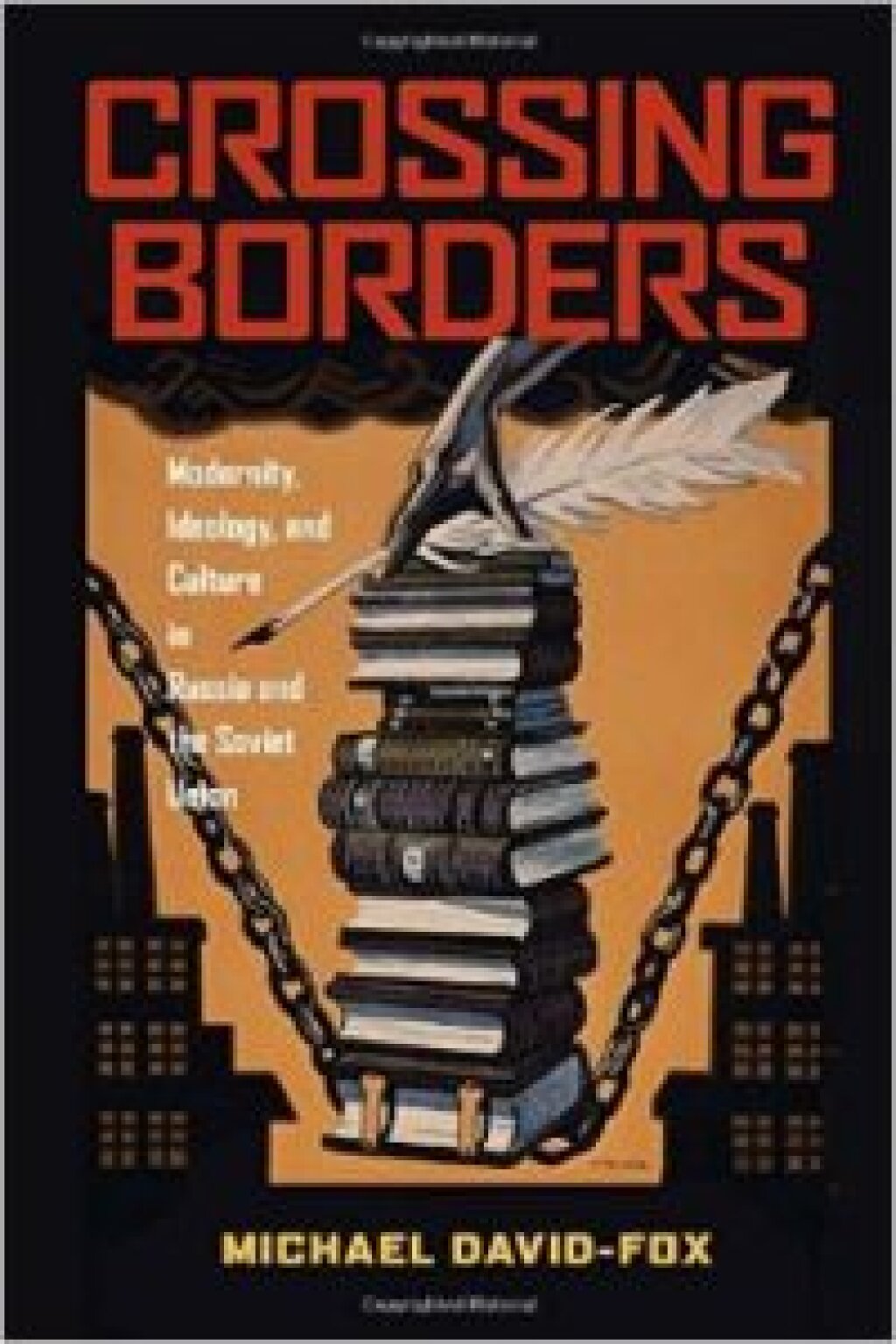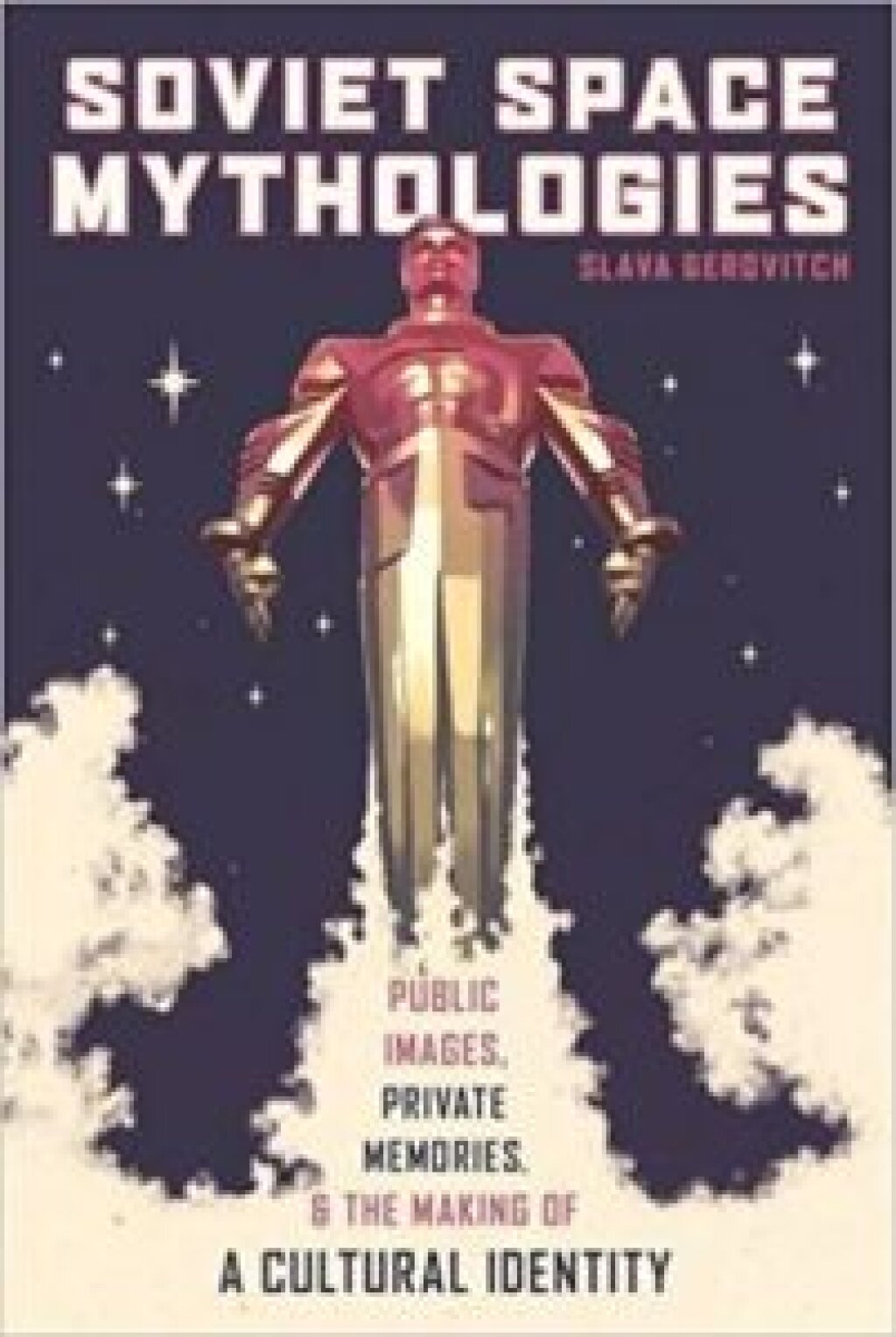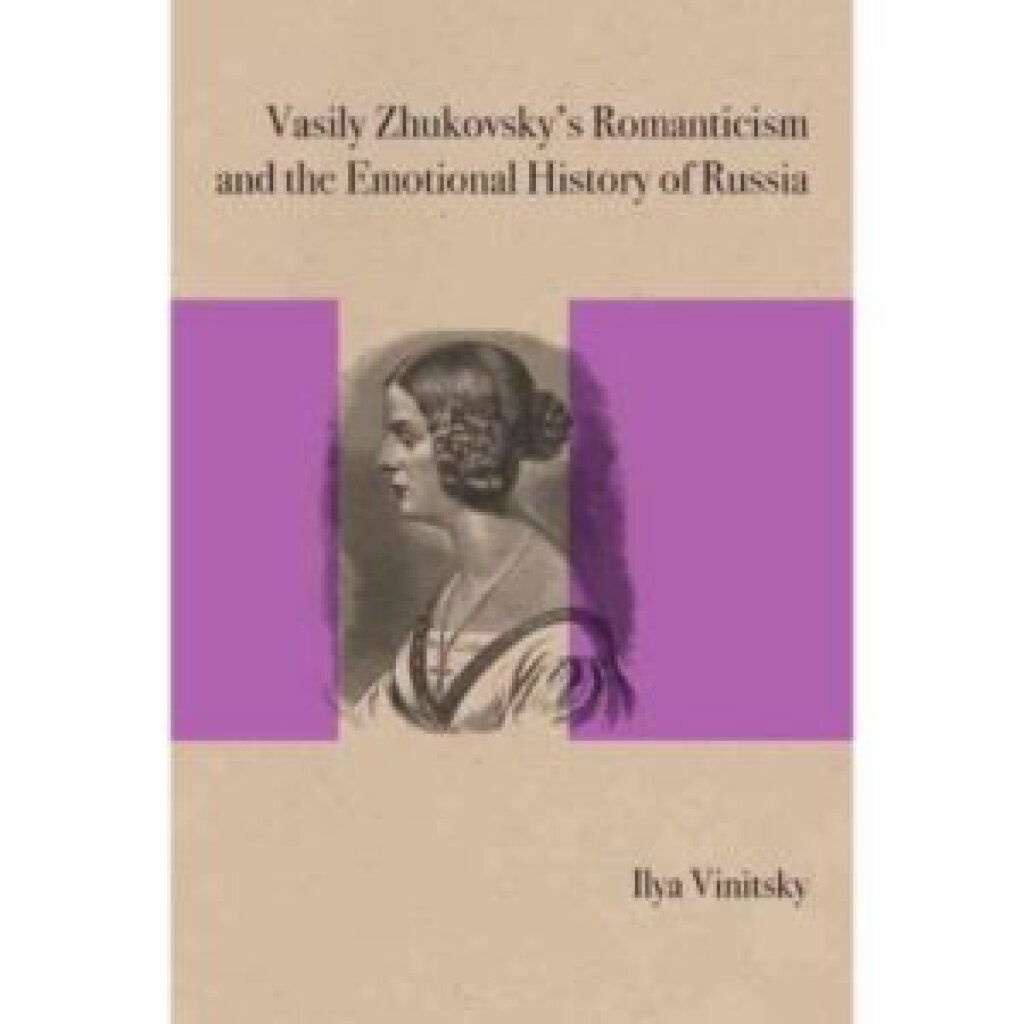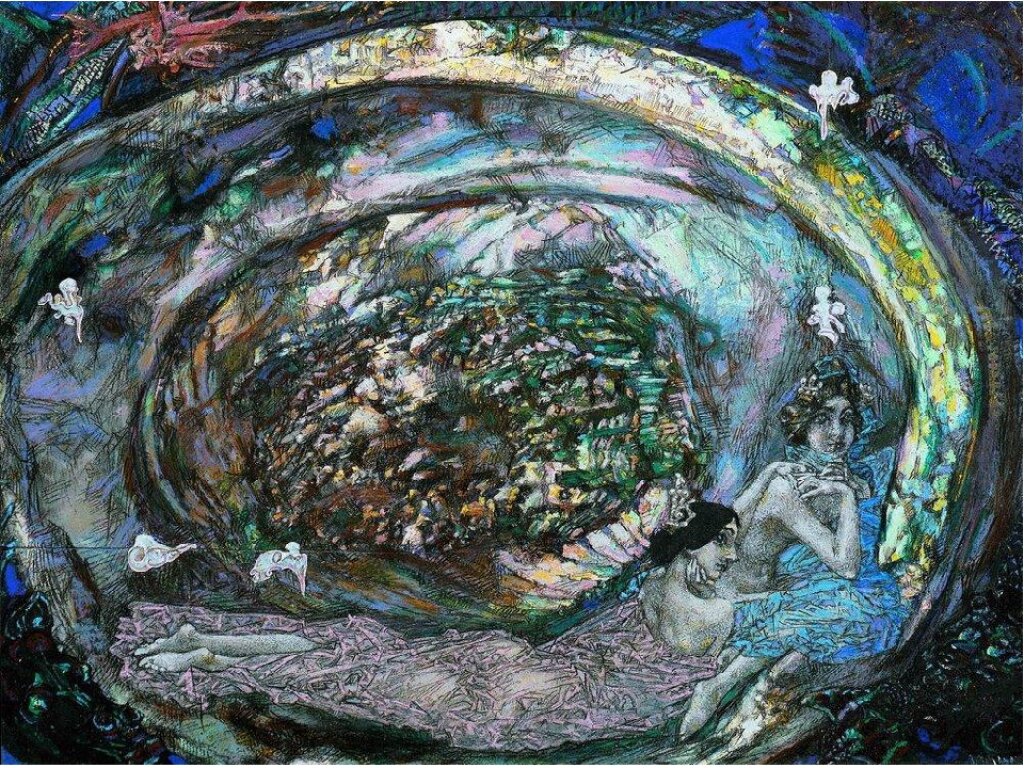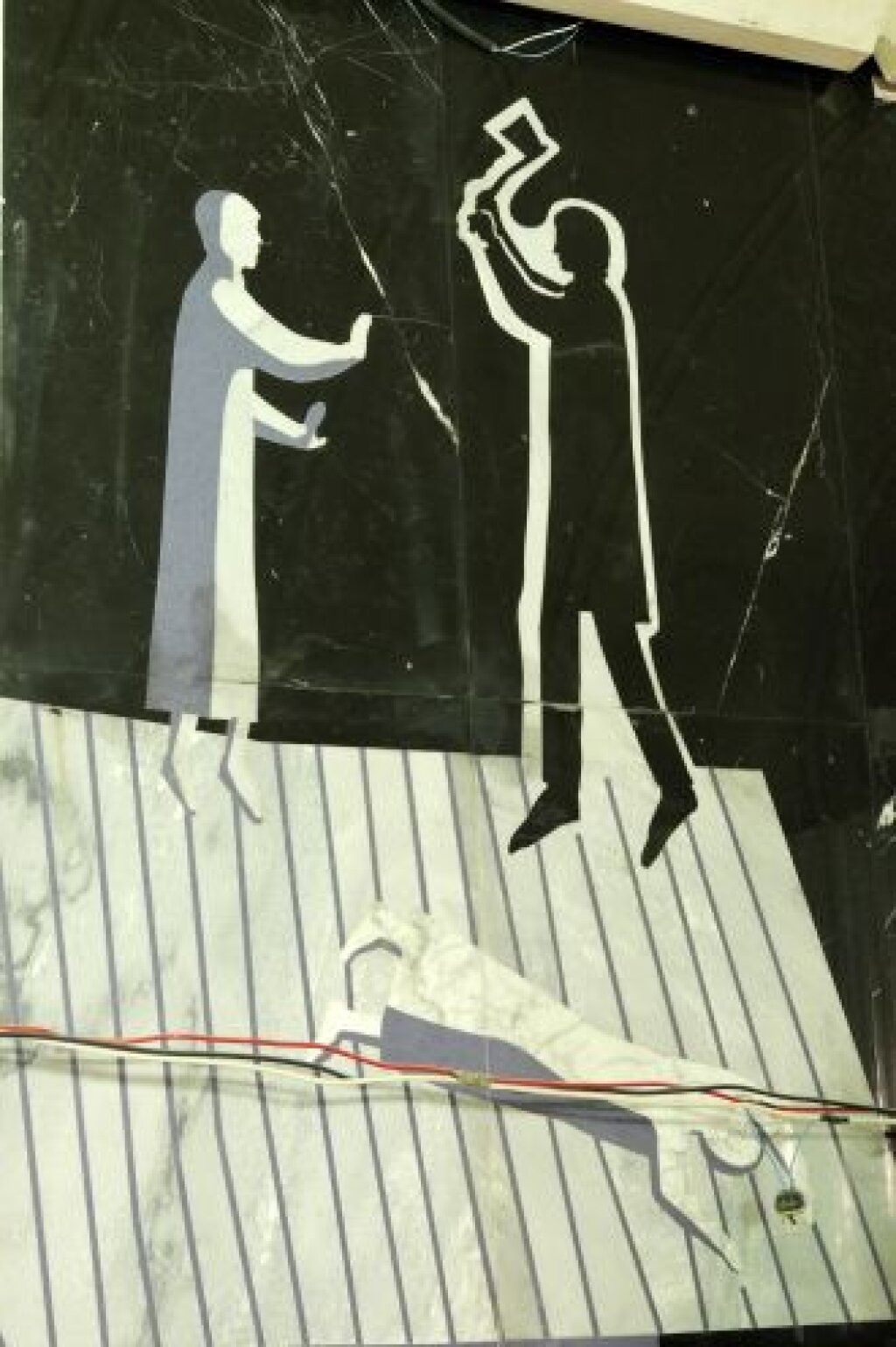Nancy Condee is Professor of Slavic and Film Studies at the University of Pittsburgh. She also directs Pitt’s REES Center, one of eleven US federally-funded resource centers.
Background: On the fifth anniversary of the Historia Nova Prize, Irina Prokhorova poses three questions to the HN winners on the current state of intellectual history in Russian studies. Established in 2012 by the Mikhail Prokhorov Foundation, the Historia Nova Prize recognizes the best scholarly work in English.
Debates on intellectual history have been waged in Russia’s lead journals, including New Literary Observer, most notably in the Issue 66 (“Paradigms of Intellectual History”) and Issue 140 (“Arguing about Modernity”). Here we offer five brief responses to questions on intellectual history posed by NLO Editor-in-Chief Irina Prokhorova. Widely regarded as a literary critic, cultural historian, and director of the NLO publishing house, Ms. Prokhorova has been internationally recognized—the Chevalier de l’Ordre des Arts et des Lettres (France), laureate of the Andrey Belyi Prize for Literature (Russia), AATSEEL Prize for Outstanding Service to the Profession (US)—as a colleague whose vision, creativity, and erudition has had a lasting impact on US Slavic studies for a quarter century.
Part One features the current Historia Nova winner Michael David-Fox, author of Crossing Borders: Modernity, Ideology, and Culture in Russia and the Soviet Union (University of Pittsburgh, 2015), with comments by the two finalists, Slava Gerovitch (Soviet Space Mythologies: Public Images, Private Memories, and the Making of a Cultural Identity, University of Pittsburgh Press, 2015) and Ilya Vinitsky (Vasily Zhukovsky's Romanticism and the Emotional History of Russia; Northwestern University Press, 2015). Part Two offers comments by two publishers associated with the most recent award. Peter Kracht (University of Pittsburgh Press) and Igor Nemirovsky (Academic Studies Press), who collaborates with the Mikhail Prokhorov Foundation.
Part Two will be posted on Wednesday.
PART ONE: THE AUTHORS
The term “intellectual history” is, of course, a term of debate. How do you understand the legacies of intellectual history, their disciplinary engagements, and your scholarship as part of that project? What are the limitations of such a characterization for the work you do?
Michael David-Fox. It is an honor to receive the Historia Nova Prize. To me, intellectual history engages ideas and intellectual activity within a broader political or social context. Among historians in the postwar period it emerged out of the history of ideas, which continues to imply a more exclusive focus on the ideas themselves and such areas as the history of philosophy. But even though I have always leaned toward exactly the kind of contextualization implied in the notion of intellectual history—after all, my first lengthy academic work, my PhD dissertation on the Soviet 1920s, had “the transformation of intellectual life in the Soviet Union” in its subtitle, and almost every work I’ve written until recently dealt in some way with the history of the intelligentsia in Russia and the USSR—I do not consider myself to be only a practitioner of intellectual history. I’ve always done archival research, for example, on political and cultural history. For me, the most fascinating conceptual payoff in the Soviet field right now lies in seeking out the realm where ideas and ideologies interact and overlap with other causal factors.
Slava Gerovitch. Recent scholarship in my field, history of science and technology, reflects more general trends in intellectual history. Moving beyond the initial insights about ideas as gendered, ideology-laden, and culturally constrained, the scope now expands to include (1) the mutual shaping of memory and identity, and (2) non-verbal forms of articulation and circulation of ideas, such as technical skills, instruments and other material objects, and various symbolic representations. In my study of Soviet space mythologies, I look at several professional groups—the cosmonauts, the engineers, and the military—through the lens of their group cultures, studying a fascinating mix of written documents, visual imagery, and oral tradition, which reflected the practices that shaped their professional and public identity.
Ilya Vinitsky. I take the fact [of the award] not only as a sign of my book’s recognition by the authoritative jury, but also as a sign that books on literature (and I am a literary scholar) can successfully compete with historical studies in this category. In my research I focus on a literary text or a group of texts as the intersection and interplay of various historical forces – ideology, politics, psychology, law, etc. To paraphrase Roman Jakobson’s definition of literary language, I consider literature as intellectual and cultural history in its aesthetic function. My “shortlist” of major scholarly influences includes the “historical poetics” of Aleksandr Veselovskii (especially his 1902 book on the emotional background of early 19th-century Russian literature), the cultural semiotics of Yurii Lotman (which had, I believe, along with Yurii Tynianov’s theory of literary evolution, a major influence upon Russian scholars of my generation), as well as the works on cultural poetics and emotional history of Russian literature by Boris Gasparov and Andrei Zorin.
In my book on the “father of Russian Romanticism” Zhukovsky, I introduce the concept of “emotional biography” as an essential part of Russian emotional history. By “emotional biography” I mean not a fictionalized “history of the soul,” not a narrative of the poet’s creative, intellectual, or cultural evolution and, even less, a medical “psychography,” but a reconstruction of his emotional life in the historico-cultural context of high Romanticism [1790-1840s]—a period in which psychological experience was interpreted as a fundamental ideological category. In brief, I believe that the reconstruction of the poet’s emotional self-making allows us not only to trace the assimilation of Western literary forms of sentimentalism in Russian culture of this period, but also to follow—almost in the style of a daily journal—the formation of a specific personality type, new for Russian culture and not reducible to its varied Western sources. The limitations of this approach are obvious: emotions are so unreliable and misleading.
We are acutely aware that the current conjuncture is a fraught time for scholars of Russian studies. What kinds of intellectual projects would be most beneficial for our shared fields—e.g. history, cultural analysis, anthropology, cinema studies, sociology—in this region? What kinds of research would you most want to advocate supporting at the current time?
Michael David-Fox. Marc Bloch once said that the past not only informs the present, but the present informs the past. To invoke the old Soviet anecdote, it’s a bit hard to predict how the past will change… To me as an historian, there are a number of topics in Russian history that for several years, in light of current political transformations, have appeared as relatively neglected and more important to investigate. These include the history of Russian nationalism and nationalist ideology especially in its international dimensions, as well as left-right entanglements across national borders. The rise of the populist, authoritarian Right in Europe and the U.S. only makes these questions even more aktual’nye, or topical. No doubt many individual scholars coming from different disciplines can also find examples of important topics that the current conjuncture brings to the fore. But I would say this: the development and maintenance of international academic, institutional, and cultural cooperation across the boundaries erected by political nationalists and their parochial academic counterparts is more important than specific thematic projects. There are going to be mounting pressures on scholars and scholarship in the years ahead and there may be many impediments against continuing cooperation among critical intellectuals, including those in Russia and the U.S. I believe this must be our first priority.
Slava Gerovitch. In our time, widely described as a “post-truth era,” new media foster new forms of social organization, new types of public personality, and new mechanisms of collective memory—highly selective, instantly sharable, and profoundly malleable. This time calls for scholarship that would deconstruct these processes, draw revealing historical and cultural parallels, and most importantly, provide ways to stop the erosion of the notion of truth. The challenge is to counter mythologized simplifications mass-produced by politicians and the media with scholarship which does not merely debunk myths, but traces their genealogy to the ideological commitments that produced them, and also restores the fascinating complexity of social and cultural phenomena.
Ilya Vinitsky. As we know, all genres are good except the boring ones. Yet, I'm afraid that humanities in general (and literary and cultural studies in particular) are getting too serious, elitist, politically engaged and sometimes (this is my personal judgment) boring. The vocabulary seems to become quite limited: post + something, geo + anything, and something + trauma. I think that what we need now are refreshing approaches, energetic and lucid individual voices, less reliance on terminology and theoretical schemes, more taste for historical and cultural nuances and paradoxes that make human history so unpredictable and fascinating, as well as a good dose of self-irony and even a sense of humor as an antidote against academic pride (in my new book, I playfully call for an “internal canalization” of academic scholarship). Good scholarship should be intellectually joyful and (to borrow Tolstoy’s term) infectious. I don’t think that we compete with mathematics, chemistry, or philosophy. We compete with literature and the arts.
This is actually the core theme of my scholarly-parodical book, recently published by NLO, Count of Sardinia: Dmitry Khvostov and Russian Culture, in which I focus on the works and reputation of the “worst poet” of the Golden Age of Russian poetry (and beyond) and examine the phenomenon of “anti-poetry” in Russian culture. I would wholeheartedly welcome launching a new book series, provisionally entitled “La Gaya Scienza,” which will deal with parodic treatments of our shared fields, such as history, cultural analysis, anthropology, cinema studies, sociology, and literary criticism.
What are you working on at the present time? How does it fit into a longer research plan, either by design or by serendipity?
Michael David-Fox. I am writing a big book on Smolensk oblast in the 1930s and 1940s—before, during, and after the German occupation of 1941-1943. It’s a very different kind of history than anything I’ve ever done: the history of a largely rural territory with an emphasis on the war years. It did grow out of my longstanding interest in political violence and the entangled histories of Stalinism and Nazism. Although it is a major departure from my previous work, its focus is on power, ideology, and individual lives, so there are continuities. I personally believe that intellectual life should develop organically, and my own historical scholarship is driven by sources. There is no master plan!
Slava Gerovitch. Throughout my scholarly career, I have been studying how Soviet communities of knowledge—from the early cyberneticians and computer scientists to the cosmonauts and space engineers and now to the mathematicians—creatively adapt to their political and social environment and develop unique professional cultures and forms of knowledge. In my current project, I explore the informal social infrastructure created by Soviet mathematicians in response to various restrictions and discrimination practiced at established institutions. Through interviews with more than 80 mathematicians, I attempt to reconstruct the lifeworld of Soviet mathematics in such diverse settings as open research seminars, free evening courses, specialized math schools, and even private kitchens and dachas, where social and intellectual activities intertwined. Despite common stereotypes, mathematical activity proves to be profoundly social, and Soviet mathematics especially so!
Ilya Vinitsky. Although I have always been driven by my interest in emotional history, my own research odyssey has been directed by a series of fortunate serendipities – a “sudden” discovery of an illuminating source of an unfinished poem on melancholy by Vasily Zhukovsky; an accidental encounter with a deliciously awkward sentimental book on melancholy; a discovery of even more bizarre Pushkin’s “posthumous poems” received by Russian spiritualists in the second half of the 19th century (one was from paradise, whereas the other one came from hell); or terrible poems and surprisingly convincing manifesto of bad art composed by a super-minor poet of the 1830s. A happy serendipity led me to the discovery of my new hero, Ivan Narodny, a Russian-Estonian-American “revolutionist,” journalist, writer, art critic, modernist playwright, “friend” of Roosevelt, Gorky, Lenin, Tolstoy, Roerich, and Sibelius, arms dealer, con-man, madman, and Theosophist. The founder of the United States of Russia and author of its Declaration of Independence, he was also a creator of a number of literary frauds and mystifications, which spread all over the world via the agency of the Hearst papers. My new book project is a “cultural psychography” (or, in terms of Narodny, the mental drama) of this colorful individual as reenactment of certain cultural trends and ideas characteristic of the American society of the 1900-40s. To conclude, these happy serendipities have opened to me new areas of study, ranging from the 18th-century Russian sentimental culture to the American Modernist movement and newspaper industry of the 1910-30s.

